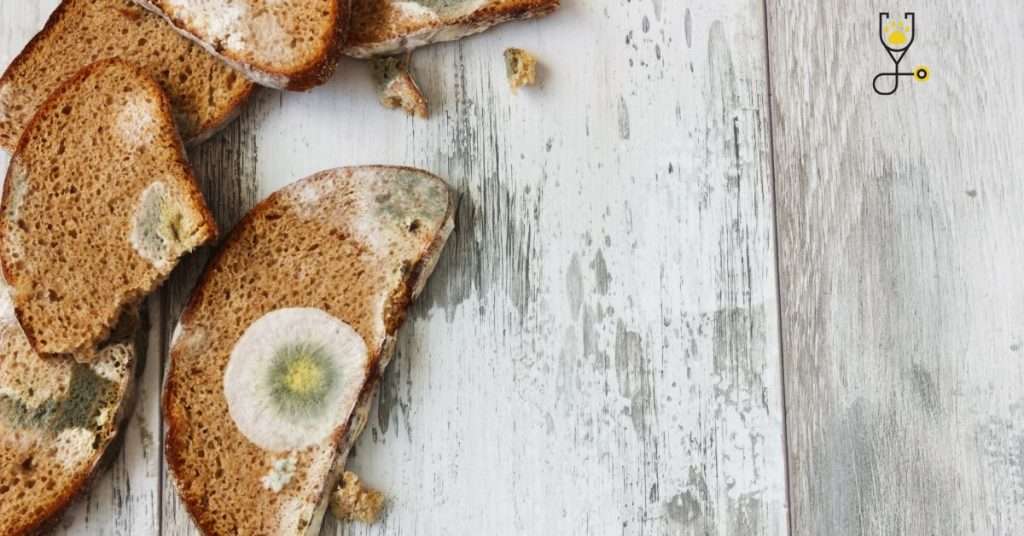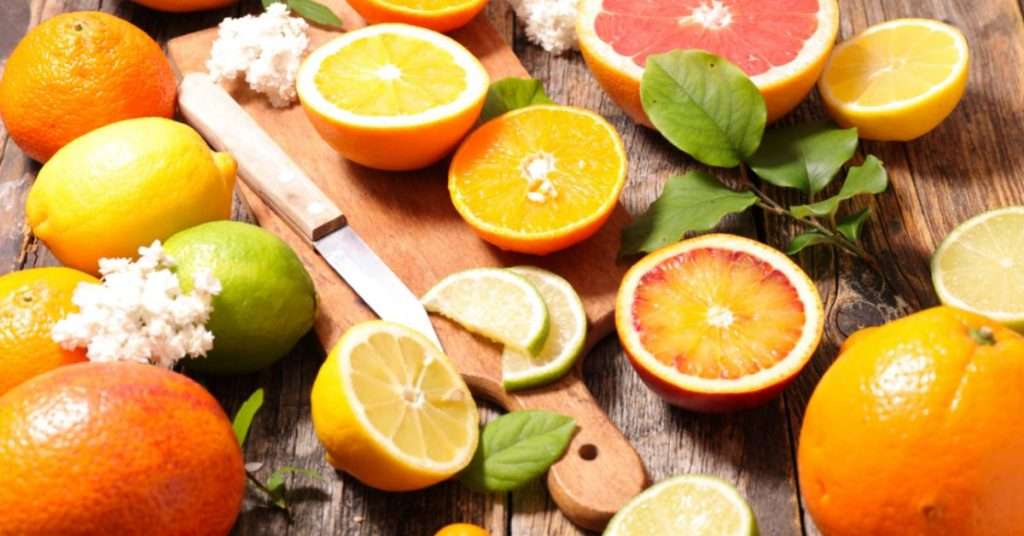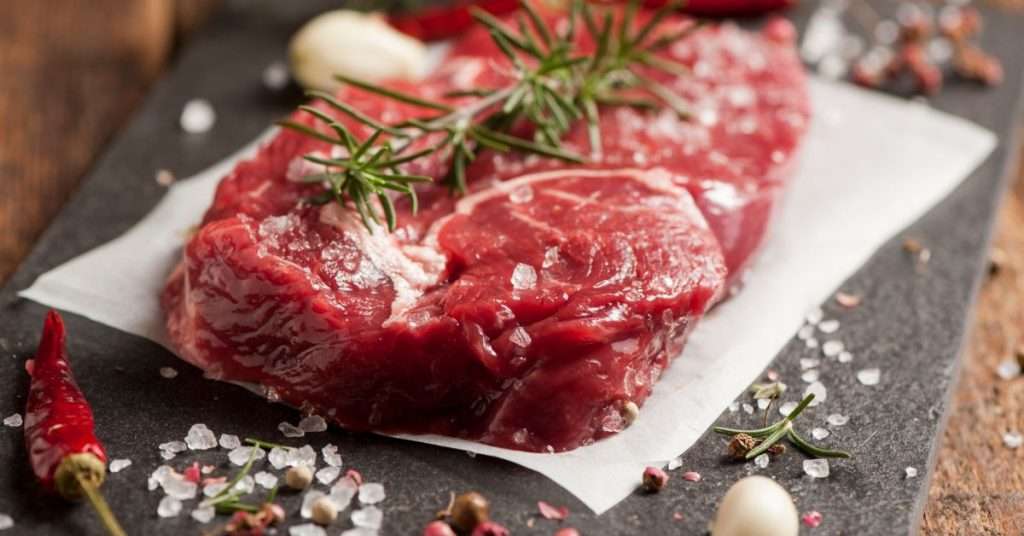Whether you’re a first-time chicken owner or have been raising them for years, it’s important to be aware of the risks associated with some common feed ingredients. In this guide, we’ll share some of the most risky foods you should never give your pet chickens. So if you’re looking for a safe and healthy diet for your birds, make sure to avoid these dangerous foods!

Some of the most common feed ingredients that can be dangerous for chickens include:
Moldy or Spoiled Food
Moldy or spoiled food can pose a serious health risk to your chickens. Moldy food can contain harmful toxins that can make your birds sick. If you suspect that any of the food in your coop is moldy, throw it out immediately and clean the area to prevent your birds from coming into contact with it.
It’s also a good idea to keep an eye on your chicken’s food supply and regularly check for signs of spoilage. If you find moldy or spoiled food, dispose of it immediately and take steps to clean and disinfect the area to prevent your birds from getting sick.
Green Potato Skins
Most people are aware that potatoes are a healthy vegetable for humans, but did you know that they can also be a healthy treat for chickens?
Potatoes are a good source of vitamins and minerals, and they can help to boost a chicken’s immune system. However, it’s important to remove the skins before feeding them to your flock.
Green potato skins contain a toxic compound called solanine, which can make your chickens sick. If you’re feeding your birds potatoes, make sure they are cooked and the skins are removed before giving them to your flock. Your chickens will thank you for it!
Read More: Why Eggs are Different Colours In Chicken
Avocados
Avocados are a popular fruit that is often used in salads, sandwiches, and dips. However, many people are unaware that the skin, pit, and leaves of avocados can be poisonous to chickens. If ingested, these parts of the fruit can cause gastrointestinal issues such as vomiting and diarrhea.
In severe cases, it can lead to death. For this reason, it’s important to remove the skin, pit, and leaves before giving avocados to your flock. While the flesh of the fruit is safe for chickens to eat, it’s best to err on the side of caution and avoid feeding them any part of the avocado.
Citrus Fruits
While the flesh of citrus fruits is safe for chickens to eat, the seeds and peels can be poisonous. Citrus fruits contain a compound called limonene, which is toxic to chickens in large quantities. The limonene is concentrated in the seeds and peels, so it’s important to remove them before feeding your birds.
Fortunately, there are a few easy ways to do this. You can either feed your chickens whole citrus fruits and let them pick out the flesh, or you can cut the fruit into pieces and remove the seeds and peel them yourself.
Either way, make sure to dispose of the waste properly to prevent your chickens from getting sick.

Chocolate
It’s a common misconception that chocolate is bad for dogs, but it’s actually toxic to chickens. Chocolate contains a compound called theobromine, which is similar to caffeine and acts as a stimulant.
Theobromine is poisonous to chickens in large amounts, and it can be fatal.
Read More: Best Egg Laying Ducks
Alcohol
Most people know that alcohol is bad for their health, but did you know that it can also be poisonous to chickens? If you’re feeding your birds alcohol, make sure it is in small amounts and only given to adult birds.
Alcohol can cause problems with a chicken’s liver and digestive system, and can even be fatal in large quantities. So if you’re keeping chickens as pets, make sure to keep them away from your alcoholic beverages!
Caffeinated Beverages
Caffeine is a stimulant that can be poisonous to chickens, especially in large amounts. If you’re feeding your bird’s caffeinated beverages, make sure they are in small amounts and only given to adult birds.
Caffeine can cause restlessness, increased heart rate, and difficulty sleeping, all of which can be detrimental to a chicken’s health. In extreme cases, caffeine poisoning can lead to death
Tobacco
Tobacco can be poisonous to chickens. If you’re feeding your birds tobacco, make sure it is in small amounts and only given to adult birds.
Marijuana
Marijuana can be poisonous to chickens. If you’re feeding your birds marijuana, make sure it is in small amounts and only given to adult birds.
Raw Meat
Raw meat can contain harmful bacteria that can make your chickens sick. If you’re feeding your birds raw meat, make sure it is cooked thoroughly before giving it to your flock.

Raw Eggs
Raw eggs can contain salmonella bacteria, which can make your chickens sick. If you’re feeding your birds raw eggs, make sure they are cooked thoroughly before giving them to your flock.
Red More: I Like Wool Sweaters, but Are They Ethical?
Dairy Products
Just like people, chickens can get sick from consuming contaminated dairy products. In fact, harmful bacteria like salmonella and E. coli can easily contaminate milk and other dairy products.
These bacteria can cause a variety of symptoms in chickens, including diarrhea, lethargy, and even death.
While it’s important to provide your flock with a healthy diet, you should avoid giving them unpasteurized dairy products. Pasteurization kills harmful bacteria, making dairy products safe for consumption.
In conclusion, there are a variety of foods that can be poisonous to chickens. If you’re unsure about whether or food is safe for your birds, it’s always best to err on the side of caution and avoid feeding it to them.